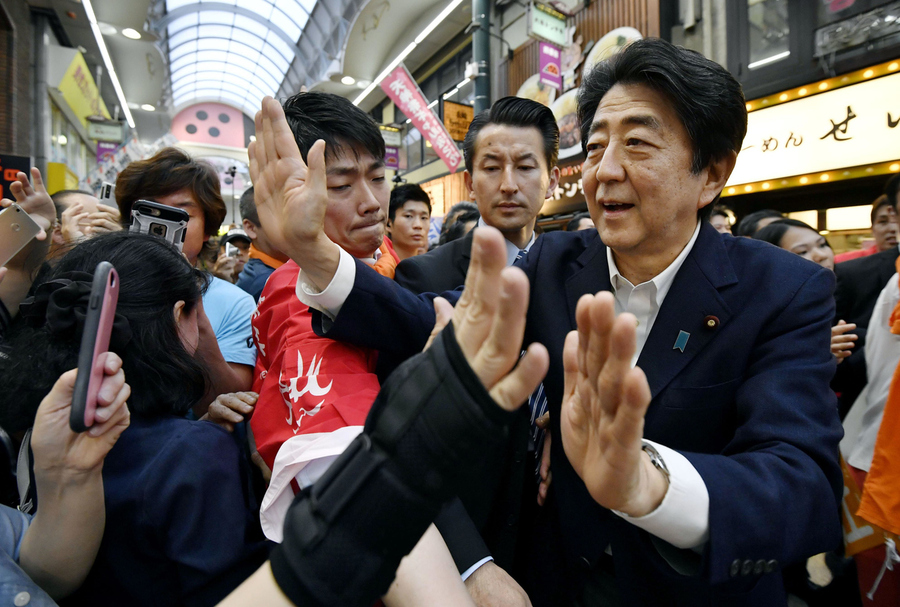 |
|
Japanese Prime Minister Shinzo Abe at a campaign rally in Osaka on July 6.
|
Japanese prime minister vaguely refers to “inappropriate issues” in TV interview
In connection with Japan’s adoption of export controls in retaliation for a South Korean court’s ruling that Japanese companies must pay damages to victims of forced labor, Japanese Prime Minister Shinzo Abe provocatively suggested that this was because South Korea may not comply with sanctions against North Korea. Abe appears to have linked North Korea to his restrictions on the exports of three materials used to manufacture semiconductors in an attempt to defuse criticism, some of it inside Japan, that the export controls were an excessive step. When asked about the reason for tightening restrictions on exports to South Korea during an appearance on Fuji Television on Sunday, Abe cited “inappropriate issues” and said that South Korea needs to thoroughly comply with sanctions against North Korea. When the Japanese government imposed the retaliatory measures on July 4, it provided two reasons: the lack of trust in its relationship with South Korea and the occurrence of “inappropriate issues in connection with managing exports.” While Tokyo didn’t provide a detailed explanation of what those “inappropriate issues” were, Abe’s remarks hint that they’re connected with North Korea. “South Korea says it’s abiding by the sanctions [against North Korea] and that it’s properly regulating trade [with North Korea]. [But] it’s become clear that South Korea hasn’t kept its international promises on the issue of forced workers. It’s natural to think it won’t keep its promise about trade regulation, either,” Abe said. When asked for more details, Abe declined to comment about specific cases. The implication of Abe’s remarks is that, since South Korea doesn’t keep its promises, it may not comply with sanctions against North Korea, leading to concerns that Japanese strategic products could make their way into the North. But Abe is likely to face criticism for this logical absurdity, since he cited vague conjecture as the grounds for imposing export controls without providing any specific evidence, such as past examples of violations. By Cho Ki-weon, Tokyo correspondent Please direct comments or questions to [english@hani.co.kr]






